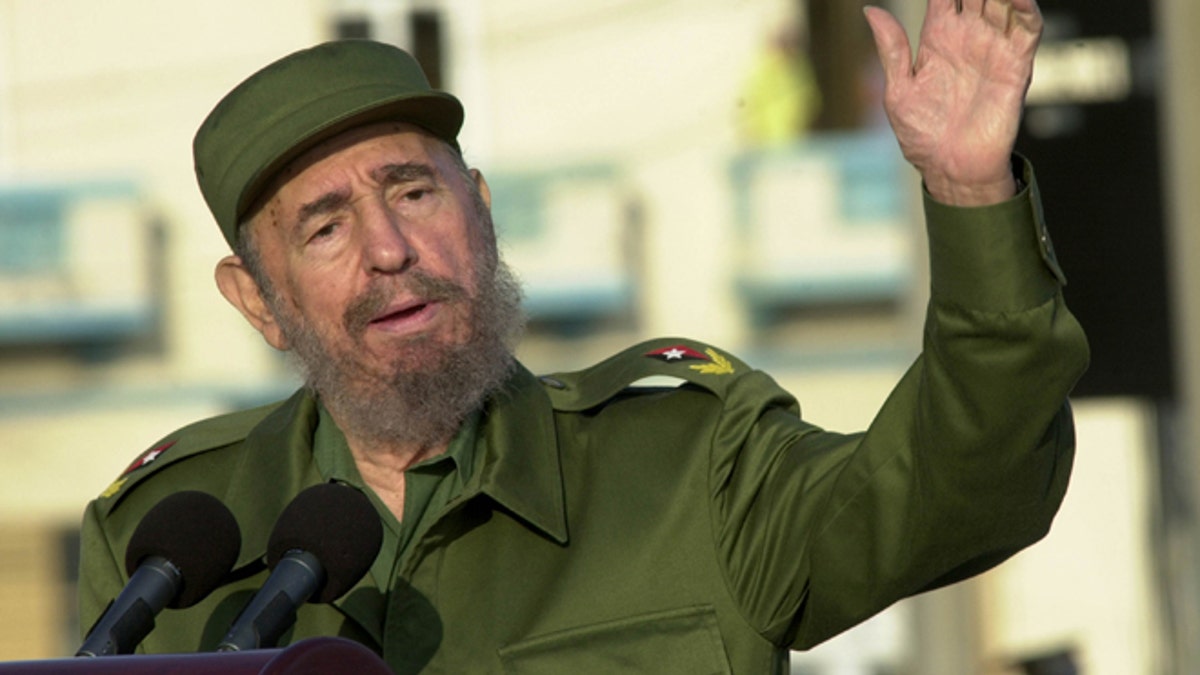
Fidel Castro gives a speech in front of the U.S. Interest Section May 14, 2004 in Havana. (2004 Getty Images)
The Cuban government has declared nine days of national mourning, ending when Fidel Castro’s ashes are interred on Dec. 4 in the eastern city of Santiago, which was key to his early life and his revolution.
His ashes will make a cross-country tour starting Wednesday from Havana to Santiago, retracing in reverse the route Castro took when the revolution triumphed in 1959.
Castro, who led a rebel army to improbable victory in Cuba, embraced Soviet-style communism and defied the power of 10 U.S. presidents during his half century rule, died on Friday night at age 90.
State media said Cubans throughout the country will be invited to pay homage to Castro on Monday and Tuesday by signing a "solemn oath of complying with the concept of the revolution."
There will then be a mass gathering in Havana's Plaza of the Revolution, where Castro often addressed huge crowds.
All public activities and events have been be canceled and the Cuban flag is flying at half-mast nationwide.
Cuban state television is carrying special programming celebrating the life of deceased former leader.
The programming includes footage from years past of Castro giving speeches on revolutionary struggle.
Castro stepped down from the presidency provisionally in 2006 due to a severe illness, and left office permanently two years later.
He was succeeded by his younger brother Raul, who announced Fidel's death on state TV.
The nightly news had started as usual on Cuban state television Friday night when suddenly something changed.
President Raul Castro appeared, seated before a desk in military uniform and delivered somber news: His brother Fidel had died, nearly 58 years after leading a rebel army to a victory that led to one of the globe's most durable socialist states.
He closed with his brother's decades-old slogan: "Toward victory, always."
Based on reporting by the Associated Press.
